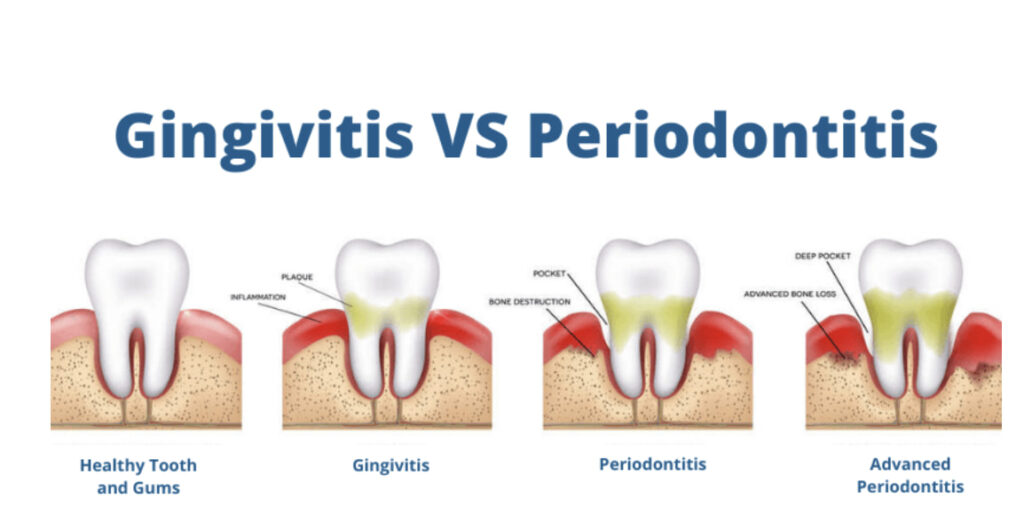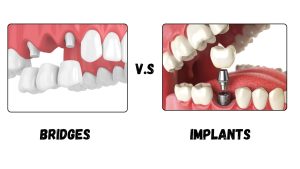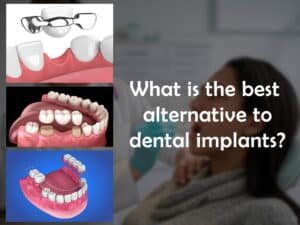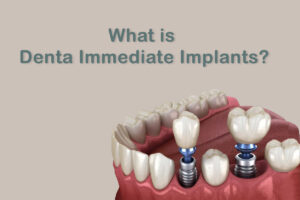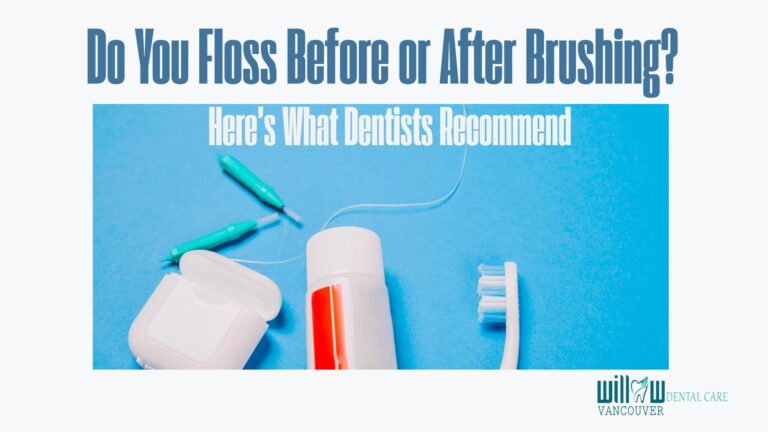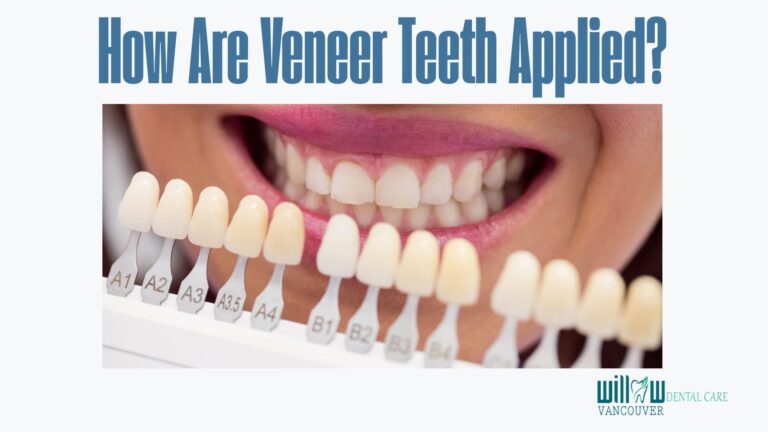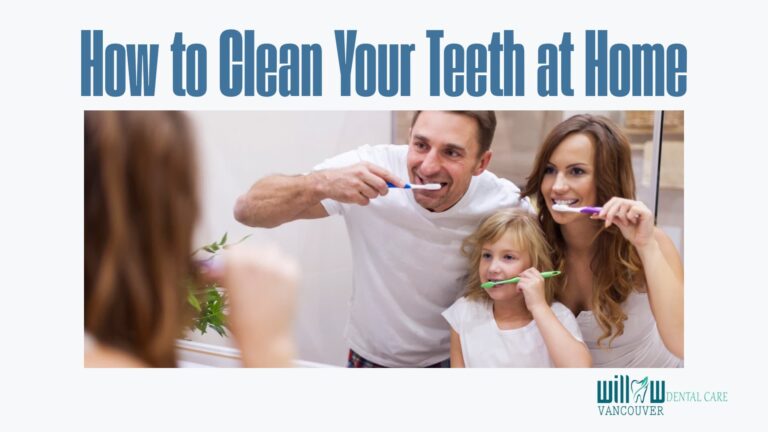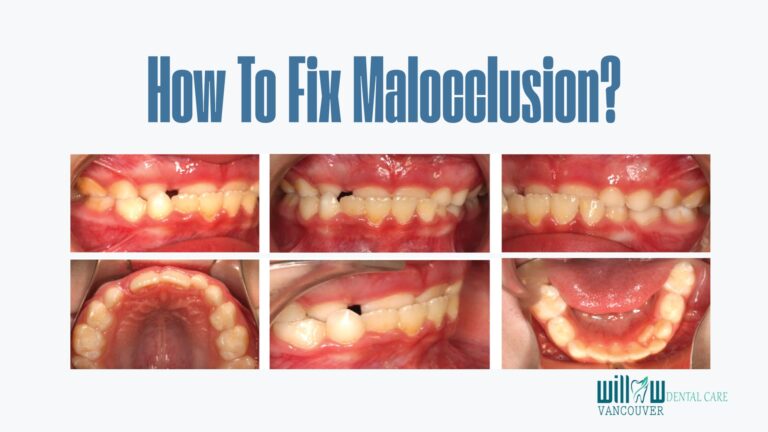Your oral health plays a more crucial role than you might realize—it’s a window to your overall well-being. Taking care of your teeth isn’t just about a healthy smile; it’s also essential for your body’s health. Neglecting dental health can lead to broader health issues throughout the body.
Maintaining excellent dental hygiene includes scheduling regular cleanings. But what’s the difference between regular cleaning and maintenance appointments?
Regular Cleaning
This is the routine dental cleaning you receive every six months at Willow Dental Care Vancouver. First, we check your teeth for cavities, abscesses, or signs of cancer and may take X-rays as needed. Then, our hygienists use special tools to remove sticky plaque and tartar deposits on your teeth. We offer two types of cleaning:
- Scaling: Removes plaque, bacteria, and tartar above the gum line.
- Root Planing (Deep Cleaning): Removes tartar and bacteria below the gum line to help prevent or treat mild gum disease (gingivitis).
Afterward, a hygienist will polish your teeth, removing any remaining residue and giving your smile a nice shine. Regular six-month cleanings are essential for removing plaque buildup and preventing gum disease.
Periodontal Maintenance
It’s very similar to regular cleaning, but it does have its differences. If you need periodontal maintenance, you may need to return every three to four months.
Regular cleaning is considered a preventive treatment/care, while periodontal maintenance focuses on your existing periodontal (gum) disease.
In periodontal maintenance appointments, a hygienist will remove tartar and plaque-like with regular cleaning but deeper, called scaling and root planning.
Also, dental probing (measuring your gum) will be done in this appointment to evaluate your gum health and track the progress of the disease. If any infection or inflammation is noticed, the dentist will flush the area with an antiseptic to help disinfect and control the infection or inflammation.
What is periodontal disease (gum disease)?
It’s a gum infection with bone loss. If the infection of the gum is associated with bone loss, it will be categorized as periodontal disease. If you don’t do anything about it, the infection of gum can spread and get worse with more bone loss. So, it can destroy soft tissue and cause bone loss and, in the end, tooth loss.
Some symptoms of periodontal disease include:
- Swollen gums
- Puffy gums
- Bright red or purple gums
- Gums that bleed easily
- Gums that feel tender to the touch
- Bad breath
- Painful chewing
- Pus between your teeth and gums
- Loose teeth
- Spaces developing between your teeth
- Receding gums
- Bone loss
Remember when we mentioned that your oral health reflects your overall well-being? If you have periodontal disease, it can be a sign that your general health may need attention.
Research has shown that periodontitis is linked to diseases such as diabetes, heart disease, stroke, infertility, respiratory disease, osteoporosis, and even cancer. Scientists aren’t sure if one causes the other, but one thing’s for sure: they’re linked.
Dr Nejad conducted research at Montreal University for two and a half years regarding the correlation between caries and periodontal disease. Ninety-four healthy adults’ teeth and gums were examined. Research showed that there is a strong relationship between caries and periodontal (gum) disease. It means that gum disease and caries are affecting each other.
What is periodontal measurement (probing)?
It measures the depth of the sulus or periodontal pocket at six specific points on each tooth. The bottom of the sulcus is where the gingiva (gum) tissue is attached to the root of the tooth. A small probe with marked millimeter increments will be inserted in the sulcus until it rests at the bottom of the pocket where the gum is attached to the tooth’s root. That measurement will help dentists and hygienists evaluate the depth of the pocket and monitor the level of progression of periodontal disease.
What are the numbers shown?
A healthy gum sulcus is anywhere up to 3mm deep with no bleeding during measurement (probing). If plaque, bacteria, and inflammation start to settle in, the periodontal tissue at the end of the sulcus will detach from the tooth and will end up to periodontal disease.
Depending on the level of attachment loss, the treatment plan can vary; for moderate attachment loos (5mm pocket depth), deep periodontal scaling and root planning with regular 3 or 4 months will be recommended. In severe pocketing, gum surgery or osseous surgery will be recommended, and the patient will be referred to periodontitis.
Stage o: Good Health/ No Disease
Gum will be pink, and healthy, with no periodontal disease and gum infection and no bleeding when you brush or floss.
Stage 1: Gingivitis (Reversible)
The gum is red and swollen. You can experience pain, tenderness, and bleeding during brushing or flossing. It is the only stage of periodontal disease that can be reversible. Periodontal pockets are between 1 mm to 3mm deep.
Stage 2: Mild Periodontitis (Irreversible)
The same signs and symptoms as gingivitis with 30% bone loss. Periodontal pockets become 3 – 4mm deep. This is the first stage of periodontal disease that is not reversible.
Stage 3: Moderate Periodontitis (Irreversible)
The same signs and symptoms of gingivitis with 50% more bone loss. Periodontal pockets are 5 mm to 6 mm deep.
Stage 4: Severe Periodontitis
The same signs and symptoms of gingivitis with up to 90% bone loss. Pain during chewing is normal. Periodontal ligaments – that hold teeth into the jaw bone – are torn. Periodontal pockets are deeper than 7 mm, and tooth mobility can be observed.
After this article, you can differentiate between regular cleaning and periodontal maintenance. Make sure to schedule regular cleanings with your dentist; the frequency will be determined by them at your appointment. Adhere to your schedule to ensure optimal health. If they suggest periodontal maintenance, do not ignore it. It means you have some level of periodontal disease, which is irreversible in some cases.
Whether you need regular cleaning or periodontal maintenance, feel free to visit us.

